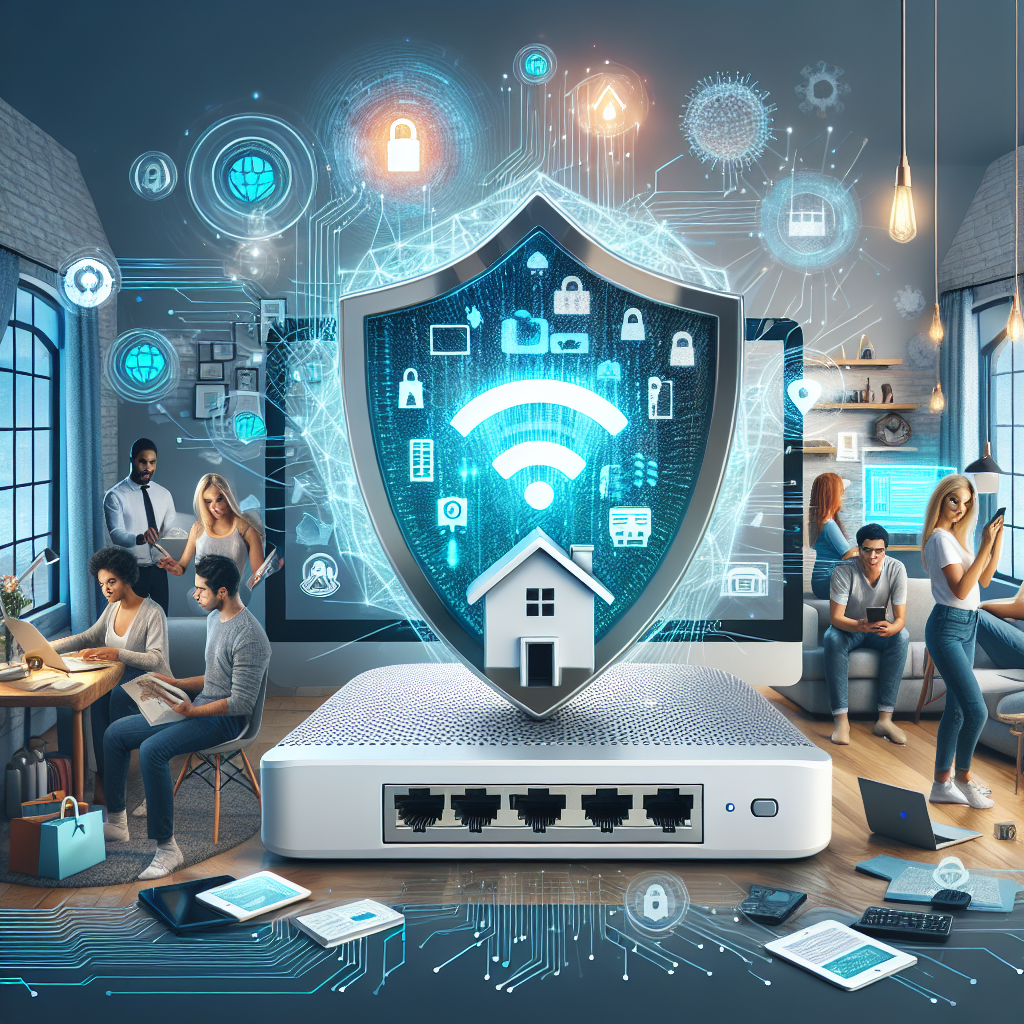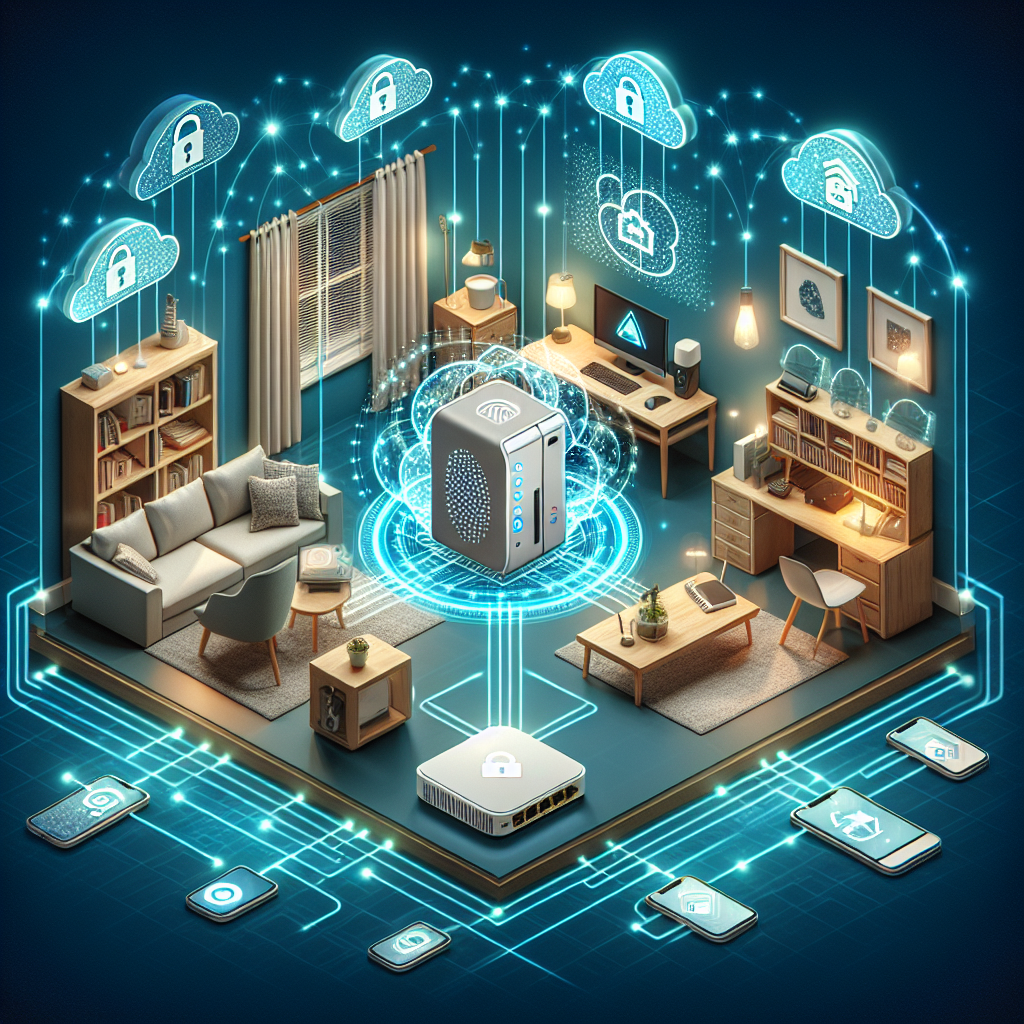In today’s fast-paced digital age, having reliable and secure home internet is essential. But what happens when unexpected outages or disruptions occur? That’s where backup options come into play, ensuring that your connection remains strong and uninterrupted. In this exploration of home internet with backup options, we delve into the various solutions available to keep you connected at all times. From backup ISPs and mobile hotspots to wireless routers with failover capabilities, we uncover the technology that can safeguard your online activities. Stay tuned as we navigate the world of home internet with backup options, guaranteeing you peace of mind and seamless connectivity.
Understanding the Importance of Reliable Home Internet

In today’s digital age, the reliability of home internet connectivity plays a crucial role in the seamless functioning of various aspects of daily life. Whether it is for work, communication, entertainment, or even household management, a stable internet connection is no longer a luxury but a necessity. Understanding the significance of reliable home internet entails recognizing the following key points:
-
Work Productivity: With the rise of remote work and online collaboration tools, a dependable internet connection is essential for professionals to meet deadlines, attend virtual meetings, and access work-related resources without disruptions.
-
Communication: Home internet reliability is paramount for staying connected with family, friends, and colleagues through video calls, messaging apps, and social media platforms. Uninterrupted communication is especially crucial for maintaining relationships across distances.
-
Entertainment and Streaming: The popularity of streaming services for movies, TV shows, music, and gaming relies heavily on a stable internet connection. Buffering or lagging due to an unreliable connection can significantly impact the viewing or gaming experience.
-
Smart Home Integration: The increasing trend of smart home devices, such as security cameras, thermostats, and voice assistants, requires a consistent internet connection for remote monitoring and control. Any downtime in connectivity can compromise the efficiency and security of these devices.
Overall, the importance of reliable home internet cannot be overstated in today’s interconnected world, where digital connectivity permeates almost every aspect of daily living. A robust and secure internet connection is not just a convenience but a fundamental component of modern lifestyle and productivity.

Evaluating Backup Options for Home Internet
Primary Backup Solutions
Evaluating Backup Options for Home Internet
- Dual Internet Service Providers for Redundancy
- Subscribing to two different internet service providers can ensure a backup connection in case one provider experiences outages.
- This setup provides redundancy and minimizes the risk of complete internet downtime at home.
-
Users can switch between the two providers seamlessly to maintain a stable internet connection.
-
Mobile Hotspot as a Backup Connection
- Utilizing a mobile hotspot as a backup option can be beneficial during internet service provider failures.
- Mobile hotspots rely on cellular networks, offering an alternative connection when traditional internet services are unavailable.
-
It is essential to have a suitable data plan to support the usage of a mobile hotspot as a reliable backup option.
-
Using a Neighbor’s Wi-Fi Network in Emergencies
- In emergencies where both primary internet service and mobile hotspot are unavailable, accessing a neighbor’s Wi-Fi network can provide a temporary solution.
- This option should only be used with the neighbor’s permission to ensure ethical and legal considerations.
- Connecting to a nearby Wi-Fi network may offer a short-term fix until regular internet services are restored.
Secondary Backup Strategies
Investing in a backup generator for power outages
- Backup Generators: One effective secondary backup strategy for ensuring reliable home internet connectivity is investing in a backup generator. Power outages can disrupt internet services, causing inconvenience and potential data loss. By having a backup generator in place, households can ensure continuous power supply to keep their internet connection active during unexpected outages.
Employing a battery backup system for uninterrupted connectivity
- Battery Backup Systems: Another valuable secondary backup option is employing a battery backup system. These systems, also known as uninterruptible power supplies (UPS), provide a temporary power source during outages. By connecting critical networking equipment such as routers and modems to a UPS, users can maintain internet connectivity for a limited period, allowing them to save work, complete tasks, or safely shut down devices in case of a power failure.
Utilizing cloud-based backup solutions for data security
- Cloud-Based Backup: In addition to power-related backup options, leveraging cloud-based backup solutions is essential for ensuring the security of important data. Storing data on remote servers via cloud services not only provides an additional layer of protection against data loss but also enables users to access their information from anywhere with an internet connection. This secondary backup strategy adds an extra level of reliability and security to home internet usage.
Debunking Common Misconceptions about Home Internet Backup
In the realm of home internet connectivity, there exist several misconceptions that can significantly impact the reliability and security of one’s online activities. By debunking these myths, individuals can make more informed decisions about implementing backup options for their home internet setup.
Myth: One internet provider is sufficient for reliable connectivity
Explanation:
Having just one internet provider may seem convenient, but it can pose risks in terms of reliability. Internet outages, maintenance issues, or technical problems on the provider’s end can leave individuals disconnected for extended periods. By having a backup internet provider, such as a mobile hotspot or a secondary broadband connection, users can ensure uninterrupted connectivity even if one provider experiences disruptions.
Myth: Backup options are unnecessary for home internet users
Some individuals believe that backup options for home internet are excessive or unnecessary. However, in today’s digital age where remote work, online education, and entertainment rely heavily on internet connectivity, having backup measures is crucial. Whether it’s a secondary internet connection, a backup power source for networking equipment, or data backup solutions, these measures can safeguard against unexpected disruptions and data loss.
Myth: Power outages do not affect internet stability
It’s a common misconception that internet stability remains unaffected during power outages. While some internet providers may have backup systems in place, individual households may still experience connectivity issues if their networking equipment lacks power. Investing in uninterruptible power supply (UPS) units for routers, modems, and other network devices can help maintain internet connectivity during power outages, ensuring a seamless online experience even in adverse conditions.
Maximizing Security and Reliability with Backup Options
In today’s interconnected world, ensuring the security and reliability of home internet connections is paramount. Implementing robust backup options can help safeguard against data loss, privacy breaches, and service interruptions. Here are some key strategies to maximize security and reliability:
Implementing encryption protocols for secure data transmission
- Utilizing VPNs: Virtual Private Networks (VPNs) encrypt internet traffic, enhancing privacy and security by creating a secure connection to another network over the internet.
- Enabling HTTPS: Ensure websites use HTTPS protocols for secure communication, especially when handling sensitive information like passwords or financial details.
- Securing Wi-Fi Networks: Set up strong passwords and encryption standards (e.g., WPA3) for home Wi-Fi networks to prevent unauthorized access and data interception.
Regularly testing backup systems for functionality
- Scheduled Backups: Establish automated backup routines to regularly save data to external drives, cloud storage, or network-attached storage (NAS) devices.
- Data Integrity Checks: Periodically verify the integrity of backups by restoring small samples of data to ensure they are complete and accessible when needed.
- Testing Recovery Processes: Simulate data loss scenarios to test the efficiency and reliability of backup systems in restoring critical information.
Creating a contingency plan for internet outages or failures
- Backup Internet Connections: Consider alternative internet options like mobile hotspots, dual-WAN routers, or redundant ISP connections to maintain connectivity during outages.
- Offline Access Solutions: Have offline access strategies in place for essential services and information, such as storing offline copies of important documents and contact information.
- Communication Protocols: Establish communication protocols with family members or housemates in case of extended internet disruptions, utilizing alternative means like phone calls or messaging apps.

By proactively implementing these security measures and backup options, homeowners can enhance the reliability and security of their home internet connections, ensuring smooth operations and protection against potential threats.
Future Trends in Home Internet Backup Solutions
In the ever-evolving landscape of home internet backup solutions, various future trends are shaping the way users ensure reliability and security in their connectivity options. These trends encompass cutting-edge technologies and innovative approaches that promise to revolutionize the way backup solutions are implemented and utilized in residential settings.
Integration of Artificial Intelligence for Predictive Maintenance
- Predictive Maintenance: The integration of artificial intelligence (AI) algorithms enables predictive maintenance of home internet backup systems. By analyzing data patterns and usage trends, AI can forecast potential issues before they occur, allowing for proactive measures to be taken to prevent downtime and ensure continuous connectivity.
- Optimization: AI-driven predictive maintenance not only enhances the reliability of backup solutions but also optimizes performance by identifying opportunities for improvement and fine-tuning settings based on real-time data analysis.
- Automated Remediation: In the event of an impending failure or connectivity issue, AI can trigger automated remediation processes, such as switching to alternative backup sources or initiating troubleshooting procedures, minimizing disruption to the user.
Advancements in Smart Home Technology for Automated Backup Solutions
- Integration with IoT Devices: Smart home technology is playing a pivotal role in the automation of backup solutions. By integrating backup systems with Internet of Things (IoT) devices, such as smart sensors and connected appliances, users can set predefined rules and triggers for seamless backup activation in case of primary connection failure.
- Remote Monitoring and Management: Advanced smart home platforms allow for remote monitoring and management of backup solutions, providing users with real-time insights into the status and performance of their connectivity options. This remote accessibility enhances convenience and control, empowering users to make informed decisions regarding their backup strategies.
- Customization and Personalization: Smart home technology enables customization and personalization of backup solutions to align with the specific needs and preferences of individual users. From scheduling automated backup routines to setting up alerts and notifications, smart home platforms offer a high degree of flexibility in tailoring backup options to suit diverse requirements.
Expansion of 5G Networks for Enhanced Backup Connectivity Options
- High-Speed Connectivity: The widespread adoption and expansion of 5G networks are revolutionizing backup connectivity options for home internet users. With significantly higher speeds and lower latency compared to traditional networks, 5G enables seamless and reliable backup solutions that can swiftly kick in during network outages or disruptions.
- Increased Redundancy: Leveraging 5G networks for backup connectivity enhances redundancy and resilience in home internet setups. By having a secondary connection through 5G, users can ensure continuous access to online services and applications, even in scenarios where their primary connection experiences downtime or technical issues.
- Geographical Coverage: The extensive geographical coverage of 5G networks further enhances backup connectivity options for users in diverse locations. Whether in urban areas or remote regions, the availability of 5G backup solutions offers a universal approach to ensuring reliable and secure home internet access.
By embracing these future trends in home internet backup solutions, users can proactively safeguard their connectivity, enhance reliability, and fortify the security of their online experiences in an increasingly interconnected digital world.
FAQs: Exploring Home Internet with Backup Options: Ensuring Reliability and Security
What are some common backup options for home internet?
In addition to traditional broadband connections, some common backup options for home internet include mobile hotspots, satellite internet, and fixed wireless internet. Mobile hotspots use cellular data to provide internet access, while satellite internet relies on signals from satellites in orbit. Fixed wireless internet, on the other hand, uses radio waves to establish a connection to a network tower.
How can having a backup internet option improve reliability and security?
Having a backup internet option can improve reliability by ensuring that you always have a connection to the internet, even if your primary connection goes down. This can be especially important for those who work or study from home and rely on a consistent internet connection. Additionally, having a backup option can enhance security by providing a secondary means of accessing the internet, which can help protect against cyber threats and data breaches.
What factors should I consider when choosing a backup option for my home internet?
When choosing a backup option for your home internet, you should consider factors such as speed, reliability, coverage, and cost. Depending on your needs and location, certain backup options may be more suitable than others. For example, if you live in a remote area with limited internet infrastructure, satellite internet may be a more viable backup option than a mobile hotspot.
How can I set up a seamless transition between my primary and backup internet connections?
To ensure a seamless transition between your primary and backup internet connections, you can invest in a router or modem that supports dual-WAN connections. This will allow you to configure both connections and automatically switch to the backup option if your primary connection fails. You can also set up failover protocols on your devices to automatically switch to the backup connection when necessary. Additionally, regularly testing your backup option and familiarizing yourself with the setup can help streamline the transition process.